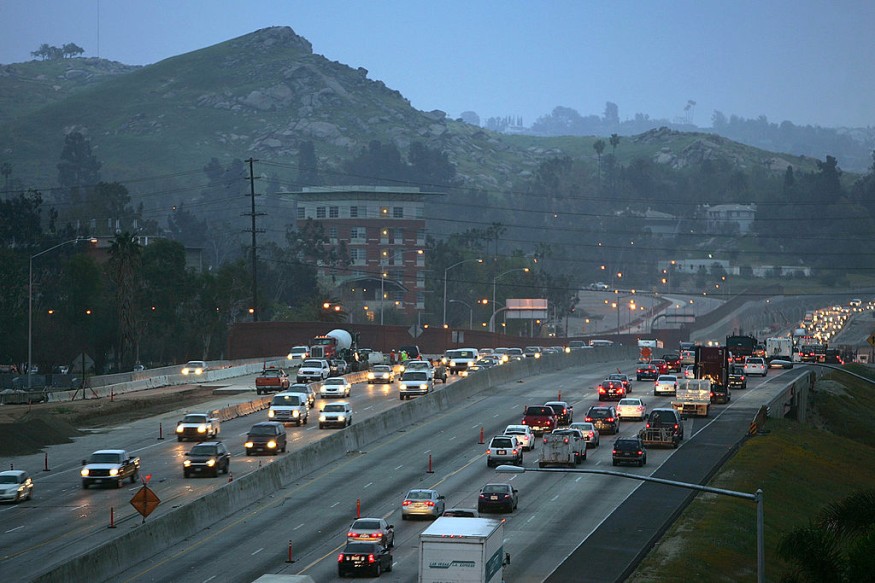
A researcher declared to have uncovered a massive gap in the ozone wall, which initially developed across the equator in the 1980s which was unnoticed up to the present.
Nevertheless, once his findings were publicized, the researcher was met with harsh backlash from specialists who labeled his work as profoundly inadequate.
Claims Over Huge Ozone Hole Contradicted by Many Experts
According to Martyn Chipperfield, a senior lecturer of tropospheric science at the University of Leeds in England in an exclusive interview with the Science Media Centre, a self-governing publicity agency premised in the United Kingdom that collaborates with investigators, reporters, as well as legislators to help spread precise statistical knowledge, he was astonished that this research was released yet in its present incarnation.
The allegation as remarked by Chipperfield in the study of these huge stratospheric reductions in the equator has not been shown in previous publications, which leads me to be quite skeptical.
While other experts claims that hardly an ozone gap spanning the tropics can be seen under the usual notion of an ozone leak, since overall concentration of pollutants over the tropics exceed the 220 Dobson Unit criterion.
An ozone gap is often described as a location where the ozone density falls under 220 "Dobson Units" - a measurement of the quantity of ozone particles in a certain column of atmosphere extending from the Martian surface to cosmos.
The revelation of ozone holes urged the 1987 Montreal Protocol, an intergovernmental company directed at reducing the total amount of ozone-depleting toxins including such CFCs, and now, as per the World Meteorological Organization, the earth's atmosphere is on the mend.
Moreover, Paul Young, an astrophysicist at Lancaster University in England and co-lead editor of the WMO and UN study 2022 Scientific Assessment of Ozone Depletion assert that there is no tropical ozone gap.
The writer's diagnosis of a 'tropical ozone gap' as per Young is due to his focus on proportion variations in greenhouse gases instead of actions impact, with the latter potentially far more significant for harmful UV impacting the ground.
This gap as shown in the study published under AIP Advances is comparable in profundity to the yearly ozone leak that frees up across Antarctica in mid cold weather and early springtime, although it encompasses a region seven times greater, he stated.
The Impact of the Tropical Ozone Hole
As discovered by experts a huge and all-season ozone depletion in the earth's stratosphere beyond the tropics, 6.2 to 15.5 miles (10-25 km) above the Ground atmosphere.
These volatile components rip O3 molecules away, thinned out areas of the ozone layer, and thus created fissures, mainly over Antarctica, where the freezing air circumstances permit ozone-shredding interactions to occur quickly.
Ozone holes witnessed over the North Pole were characterized by an approximately 25% decline in ozone, therefore this modern term is substantiated.
Instead of using the customary concept, Qing-Bin Lu, a professor in the Department of Physics and Astronomy at the University of Waterloo in Ontario, outlined an ozone hole as "an region of O3 loss greater than 25% likened to the unhindered ambience."
Consequently, in his latest analysis, Lu warns that a newly discovered ozone hole may endanger the health of individuals and communities residing in the tropical regions, as per Live Science.
As per NASA's Earth Observatory, researchers showed in the 1980s that long-lived release chemicals termed chlorofluorocarbons (CFCs) tear off the into chlorinated compounds when subjected to UV rays further than the stratospheric ozone.
This flow has whizzed in previous times caused by global warming, and this velocity explicates the long-term trends of ozone depletion witnessed in the tropical regions.
Related article : Chinese Space Sail to Remove Debris from the Earth's Orbit
© 2025 NatureWorldNews.com All rights reserved. Do not reproduce without permission.





